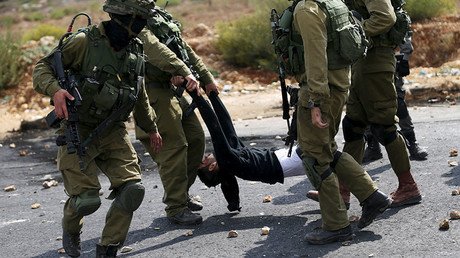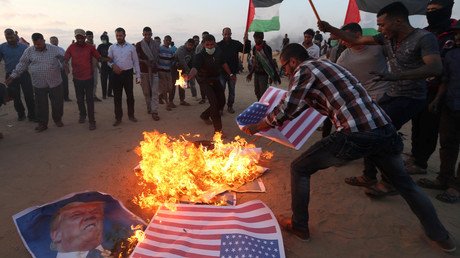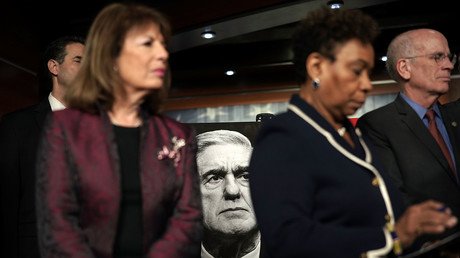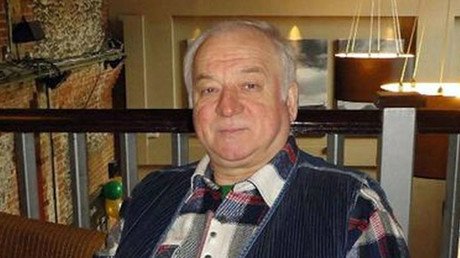‘Peace is beyond the reach of ordinary people’ – 97yo Palestinian recalls the conflict (VIDEO)
With the bloody Israeli-Palestinian conflict raging for decades, Mohammad Mahmoud Jadallah recalls how the tensions between the two nations over land and holy sites spiraled into wars, forced displacement and evictions.
Born in 1921 amidst the collapse of the Ottoman Empire, Mohammad grew up in Palestine when it was controlled by the British after World War I. In 1946, he was waiting tables in the King David Hotel in Jerusalem, when the Zionist militant group Irgun blew it up, killing 90 people. He vividly remembers the turbulent times of the creation of Israel in 1948 – the event is celebrated by the Jews as the triumph of their statehood, and lamented by the Palestinian Arabs as hundreds of thousands of them were forced to flee or were expelled.
The 1948 UN partition plan for Palestine was accepted by the Jews, but rejected by the Palestinians, so war ensued. Mohammad joined the Arab fighters in Jerusalem. “The Jews were superior in numbers and had more capabilities, they managed to win control over the country,” recalls Mohammad today. “It was the reason for the forced eviction of the Palestinians from their homeland.”
Around 750,000 Palestinians had become refugees by 1950, according to the UN, and more than a million people live in refugee camps today – many of them in the Gaza Strip and the West Bank.
Many of the protesters in Gaza are the descendants of people originally expelled from Jaffa, Haifa, Nazareth and other towns, says Mohammad, reminiscing about the 1948 Palestinian exodus or ‘Nakba’ – the ‘Catastrophe.’
The ongoing protests stay deadly, with at least 60 Palestinian fatalities just this week. The IDF claims that the majority of the killed related to Hamas and Palestinian Islamic Jihad. However, Mohammad insists that this is not true. “All of the killed were peaceful, ordinary people. They had no relationship to the militants,” he says. “The protesters simply wanted the world to know that they demand justice, they want to return home, return to their homeland. They had no ill intentions.” He adds that the protesters were unarmed and, if the army had shown restraint, it is possible that they would have already reached some sort of agreement and left.
Mohammad is convinced that Trump made a mistake by relocating the US embassy from Tel Aviv to Jerusalem. “America had completely sided with Israel. It’s wrong from a diplomatic standpoint.”
He believes that the only way to stop the bloodshed is for Israel to comply with the international law and the UN resolutions. That will end the hostilities, he hopes. “If everyone wants to live in peace, there will be peace. If all parties affirm their determination to achieve peace, the situation will be resolved. People here want to live a normal life, that’s all,” says Mohammad, although he admits that there is little that ordinary Palestinians like him can do. “These issues are beyond our reach. This is a problem at the international level. We can’t solve it by ourselves.”
















